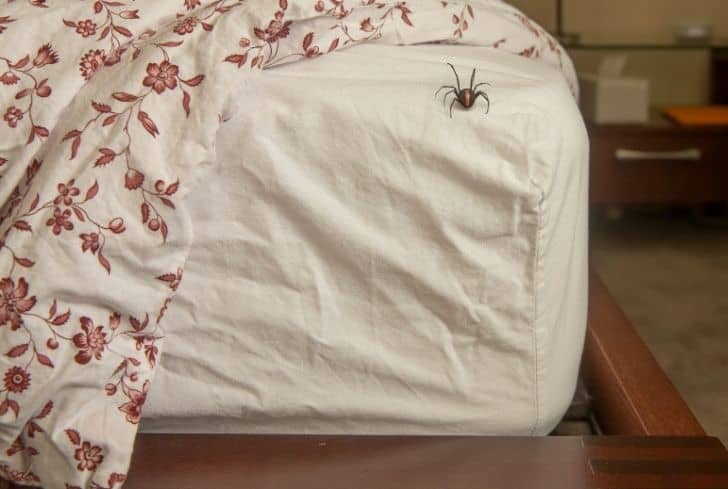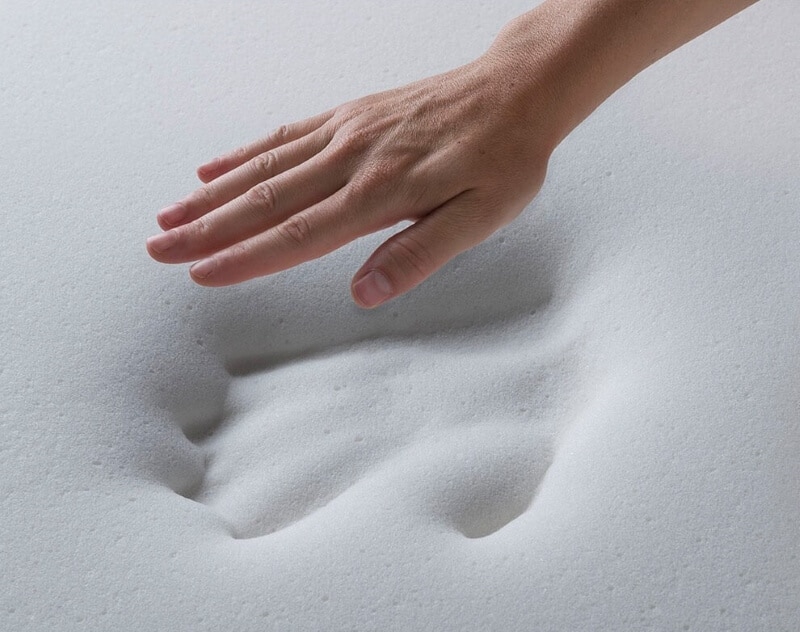

We’ve all fallen asleep on our couches at some point. We drift off while watching television or curl up for an afternoon nap on these comfy pieces of furniture. Doing this now and then won’t have too much of an effect on you but it isn’t a good idea to make sleeping on couches a habit.
There are a few different reasons for this. First of all, couches are not designed for this, so they don’t offer the support needed for laying down on them. They are meant to be sat on, so the support they offer is not the same as that of a mattress. You likely aren’t getting the same quality of sleep as you would in a bed.
If you’re one of those people who enjoy sleeping on your couch but aren’t sure if it is the best thing for you, read on for more information.
Despite how refreshed you may feel after a short nap on your sofa, there could be some long-term consequences for this if you do it frequently.
There is a reason mattresses are designed for support. They keep your body in the right position to maintain your posture, even when you’re sleeping. A couch has no such support measures in place, so you’re spine curves to the shape of the couch as you sink into it.
Though short naps won’t do too much damage, making a habit of couch sleeping could lead to long-term spinal issues.
Another side effect of a couch’s lack of support is that it also curves your neck in unnatural ways. That’s why many people wake up with sore necks and backs, as well as pinched nerves that take some time to heal. Even if you’re using a throw pillow for your head, the unsupportive frame of the couch will still affect the way your body is positioned, with painful results.
Sleeping on a sofa doesn’t give you the same sleep quality as your bedroom will. Most of the living spaces that contain couches have windows that let in light. The more light there is, the harder it will be to get a proper amount of sleep. We need darkness to maintain the proper circadian rhythm Trusted Source What Is Circadian Rhythm? | Sleep Foundation Circadian rhythms promote quality sleep & overall health. Read about the internal clock, why it’s important, & how it can be supported. www.sleepfoundation.org , which is a function in our bodies that regulates our sleep-wake patterns. Light throws off this pattern, so your body will have difficulty settling down for a proper rest.
The material used to upholster couches is not even close to the soft fabrics on a mattress. Couch fabrics aren’t designed with gel infusions to keep you cool or moisture-wicking to pull moisture away from your body. This allows the material to retain the heat instead of releasing it, so you’ll be sweating in no time.
Couches are used for more than just sitting. The longer seat allows you to put your feet up, turning your couch into a lounger. Pets may also climb up there, leaving behind all the dirt, bacteria, and germs they’ve picked up throughout the day.
Distractions are another big problem with sleeping on a couch. These pieces of furniture are usually in living rooms, which is the same room you likely have a television in. There could be a home phone, cell phone, or computer as well, and in some cases, all three. This is also a popular room for family members, so trying to sleep in there won’t be an easy task with other people coming in and out, whether they are talking to you or not.
Couches are designed to be sat on for short periods of time. When you take short naps on them, you likely aren’t doing too much extra damage. This changes when you’re laying down for hours at a time instead of heading to bed for proper sleep.
The heavier parts of your body, mainly your hip area, will sink into the couch. Over time, this will cause sagging in the cushions and frame. If you’re resting your head and feet on the armrests, this causes depressions to form. The covers will also wear out faster, especially if you aren’t putting any sheets or blankets between you and the couch.
Though sleeping on the couch is not recommended, there are a few instances when it might benefit you to do so. Anyone suffering from insomnia may find that changing their location from their bedroom to their living room may help them fall asleep. Of course, this shouldn’t be a permanent solution, it should only be used as a way to recalibrate your brain to help you sleep better in your bedroom.
Laying flat on a bed when you’re sick with a cold or the flu may not be the most comfortable. The seat and back of a sofa create a cocoon-like area, especially when you’re snuggled beneath some blankets. This could increase your comfort level, making it easier to sleep. Keeping your chest elevated above your legs can also help relieve any congestion, allowing you to breathe easier.
If you have to sleep on your couch anyway, there are a few things you can do to help preserve this piece of furniture and make it extra comfortable for you when you bed down on it.
When you sleep on your couch for more than just a nap, treat it like the mattress on your bed. This means using the same bedding that you would normally use if you were going to sleep in your bedroom, including pillows with pillowcases, fitted sheets, top sheets, and blankets or a comforter.
When choosing your sheets, you should pick some that are breathable and moisture-wicking to keep you cool and dry during the night. Cotton or bamboo sheets are good options since they both offer these features. These Tencel sheets from Helix or these bamboo ones from Puffy are another good option since they are high-quality thick sheets that are ultra-soft and eco-friendly.
No matter what type of bedding you choose, be sure it is comfortable and makes you feel as though you’re in a proper bed to ensure the best sleep possible. The same goes for your pillow, which should be firm enough to give you the neck support you need to avoid those morning aches and pains.
If you have a normal couch, make it up as best you can with the bedding of your choice. For a fold-out model, don’t leave it in the couch position to sleep on. Unfolding it into a proper bed will make it much more comfortable to sleep on. This will give you the room you need to stretch out and roll around as needed during the night.
This will also help maintain the integrity of the couch since the unfolded bed is designed to be slept on while the folded couch position is best for sitting. So, not only will you be preventing injury to yourself by trying to squeeze into a smaller space, you’ll be protecting your couch from unnecessary damage.
For those fold-out couches, a great mattress is needed to keep you comfortable all night and offer the right support to keep you from struggling out of bed in the morning with a sore back and stiff legs. You likely can’t put a regular bed mattress on your fold-out couch unless you plan on leaving it in the bed position permanently.
Instead, you should get a sofa bed mattress that is designed for comfort and support. These come in a few thickness and firmness options. There are also a variety of material choices, including comfort or support foam, memory foam, and latex, so you can choose which is best for you. They can be folded up in the couch when you’re not sleeping, so you don’t need to drag them from room to room to get it out of the way.
When it’s time to lay down on your couch for some sleep, be sure to turn off all the lights in the room, as well as lights in other rooms that could illuminate the area you’re sleeping in. Full darkness is best to get the proper sleep.
You should also turn off the television. Not only does it produce light, but it also creates sound, so whatever is happening on the screen will distract you and prevent you from getting a proper night’s rest. You may also want to move your phone out of reach to keep you from peeking at it as you’re trying to settle into sleep.
We have beds for a reason, so this is the best place for us to sleep. They are designed for proper positioning, spine alignment, and comfort. We don’t always fall asleep in our beds though, especially when we are already settled on our couches and start to drift off.
Though there are some benefits to sleeping on couches, especially if you have insomnia or a cold, this isn’t the best choice for long-term use. Short naps are fine but sleeping on your couch every night for hours at a time can lead to pain in several areas of your body. If you must sleep on your couch, be sure to use the right bedding and a proper mattress if possible to ensure you’ll wake up rested and refreshed.





